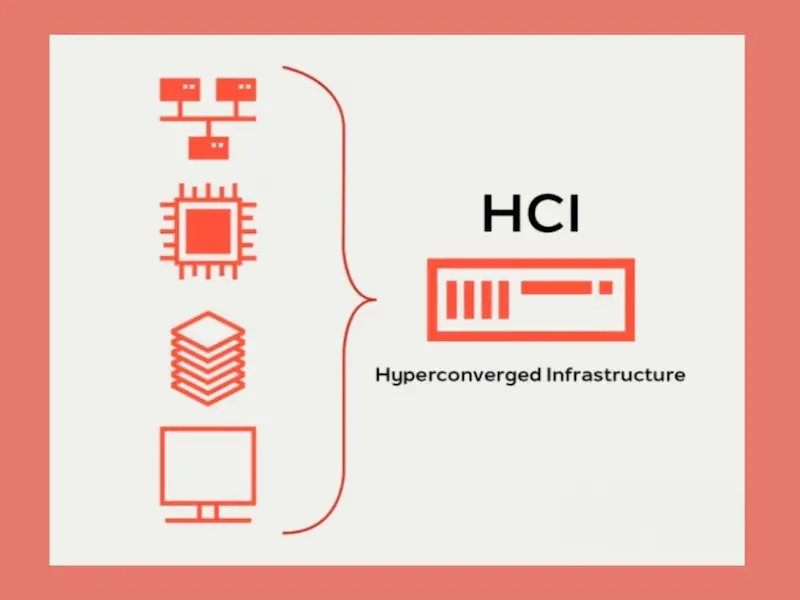- Hyper-converged infrastructure integrates compute, storage, and networking into a single system, simplifying data centre management.
- This solution improves scalability, reduces costs, and enhances efficiency through automation and virtualisation.
Hyper-converged infrastructure (HCI) is a software-driven solution that consolidates compute, storage, and networking into a cohesive, virtualised platform. Traditional data centres often rely on disparate hardware components, leading to complexity in management and scaling. In contrast, HCI leverages software to pool these resources, enabling IT teams to manage them centrally through a unified interface. This integration simplifies infrastructure management and ensures consistent performance across different workloads.
Advantages of hyper-converged infrastructure
The primary benefit of HCI is its flexibility. Organisations can scale their resources up or down depending on demand, without the need for additional hardware investments. This scalability is particularly beneficial for businesses with fluctuating workloads or those operating in dynamic industries. Additionally, HCI enhances operational efficiency by automating many routine tasks, such as provisioning and resource allocation. This not only reduces the workload on IT staff but also decreases operational costs. Security and disaster recovery are also improved, as HCI can automatically create backups and restore systems with minimal downtime.
Also read: What is security vulnerability management?
Also read: What is automated test equipment?
The future of hyper-converged infrastructure
The rise of hybrid and multi-cloud environments is likely to drive further adoption of HCI, as it can seamlessly integrate with cloud solutions to deliver a unified infrastructure. As organisations seek more agile and scalable systems, HCI will play a crucial role in bridging the gap between on-premises and cloud environments. Furthermore, with ongoing advancements in artificial intelligence and machine learning, HCI systems are expected to become more intelligent, optimising resource allocation in real-time and predicting system failures before they occur. This next generation of HCI will not only enhance IT infrastructure but will also play a key role in digital transformation efforts across industries.

